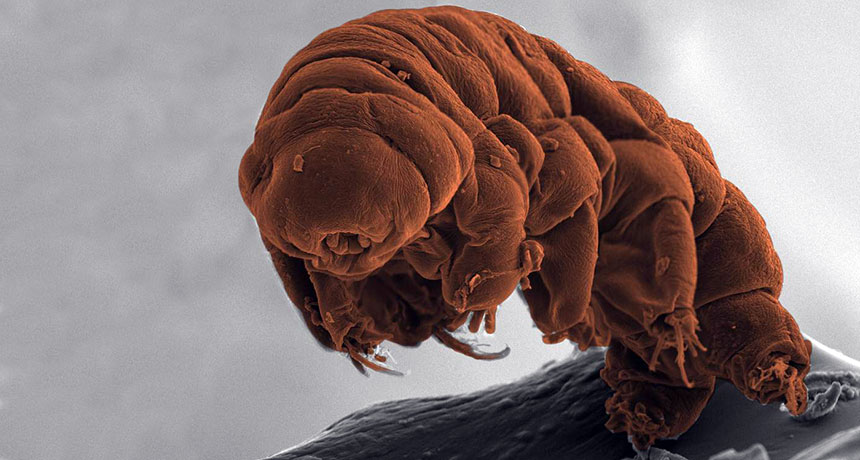Japanese researchers discovered a radiation protection gene in a small animal named the tardigrade.
 Source: sciencenews.org
Source: sciencenews.org
Tardigrades, also known as water bears, are resilient organisms able to survive through extreme temperatures, outer space, high pressures, and intense radiation. After decoding the entire genome of the Ramazzottius varieornatus tardigrade, the scientists found a protein that may be key to resisting high amounts of radiation. Named Dsup for Damage Suppressor, the protein protects DNA from being damaged when it is irradiated.
In the study, human cultured cells exposed to X-rays had their DNA damaged. When given the ability to produce Dsup, the same cells sustained only half the radiation damage. Even more surprisingly, human cells capable of creating Dsup were also able to reproduce.
Previously, molecules that repaired DNA damage were thought to be the core means to radiation tolerance. However, with Dsup, its effectiveness is centered on minimizing harm to DNA rather than fixing it up after the fact.
With this finding, scientists hope to unearth more proteins like Dsup in the tardigrade genome.
